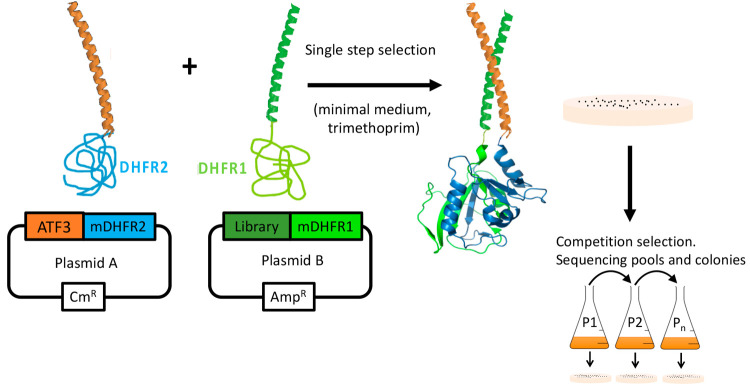Figure 4.
Protein-fragment complementation assay. Both library a and e/g selections were carried out in bacteria. During PCA, members that bind to the ATF3 leucine zipper result in the recombination of the murine dihydrofolate reductase (mDHFR) enzyme, leading to the generation of colonies under M9 selective conditions (with bacterial DHFR selectively inhibited using the antibiotic trimethoprim). Those peptides displaying the highest affinity for ATF3 conferred the fastest cell growth rates. Subsequent competition selection passages were then undertaken in liquid medium to enrich potential PCA winners with the highest efficacy. PCA is additionally performed in the cytoplasm of E. coli, meaning that nonspecific, toxic, unstable, aggregation-prone (insoluble), and protease-susceptible members are removed.

